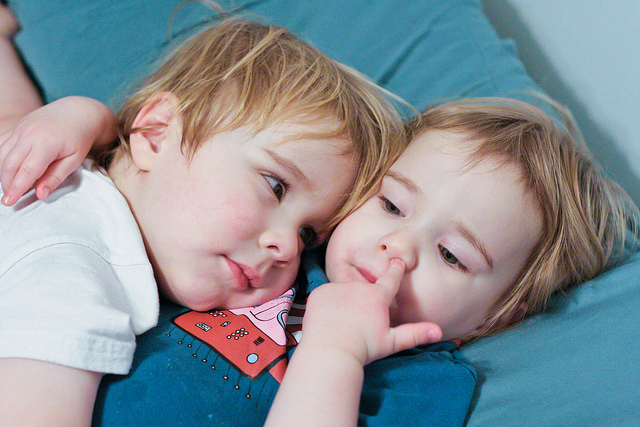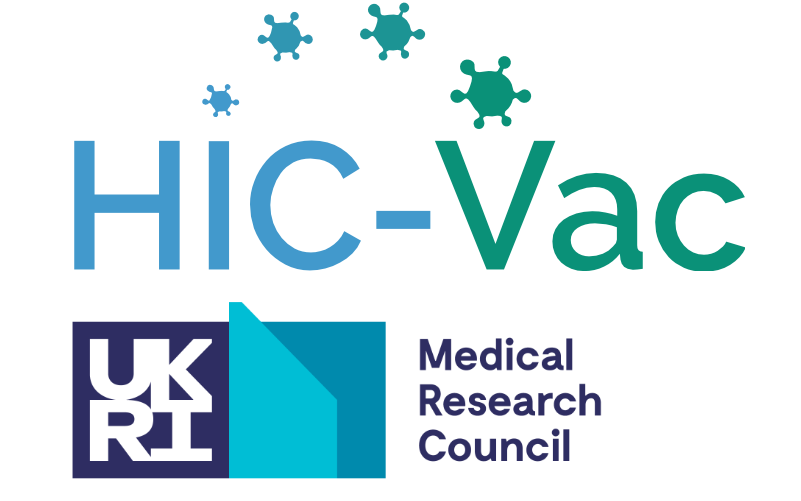You might have seen some recent headlines that picking your nose could spread bacteria that cause pneumonia.
Researchers already knew that bacteria called Streptococcus pneumoniae – or pneumococcus – can be spread by airborne droplets. Cough or sneeze without a tissue, and the bacteria can be passed on to people around you.
New research, published in October 2018 in the European Respiratory Journal carried out by Professor Daniela Ferreira’s team at the Liverpool School of Tropical Medicine, shows for the first time that pneumococcal bacteria can also spread by direct physical contact too.
And the findings are important, because they also reveal a simple way that people can reduce the spread of the bacteria. Let’s look at what the team found out.
When pneumococcus turns bad
Around 1 in 10 adults and between 4 and 9 in every 10 children carry Streptococcus pneumoniae, or pneumococcus, bacteria around in their noses.
Pneumococcal bacteria are largely harmless passengers, and researchers have done studies that show carrying them around can protect children and adults against re-infection and getting more serious illnesses.
But for some groups of vulnerable people, these peaceful passengers can become unruly and cause serious consequences.
Older people, babies, and people with weakened immune systems can become seriously unwell from out-of-control pneumococcal infections. Some infections are mild and easy to treat, such as ear and sinus infections, while others (including meningitis, blood poisoning, and pneumonia) can be life-threatening.
Understanding how the bacteria spread is important, to try and reduce the risk of infection for vulnerable adults and infants.
Investigating skin-to-skin spread with the help of volunteers

Image thanks to
https://www.flickr.com/photos/evilpeacock/6423510787/
The team of researchers set out to discover whether hand-to-hand contact is likely to play a role in pneumococcal infections spreading from person to person.
“We carried out a human infection study – we asked for volunteers to help by joining our study and being exposed to pneumococcal bacteria we put on their hands,” says Professor Ferreira, who led the research.
The volunteers, all healthy adults, had no signs of pneumococcal infection at the start of the study.
“We have lots of experience carrying out pneumococcal research involving volunteers. Healthy adults with a good immune system can very easily clear the infection, so the risks to people are very low.
“But just in case, we use a strain of bacteria that can easily be treated with antibiotics. If anyone feels unwell during the study, or they still have detectable levels of pneumococcal bacteria at the end of it, we give them antibiotics to clear up the infection,” says Professor Ferreira.
Between April and May in 2017, 40 volunteers helped the team shed more light on whether pneumococcal bacteria can be passed from hand-to-nose.
Hand sniffing and nose-picking
The 40 volunteers were split into 4 groups. Two groups had pneumococcal bacteria droplets put on the back of their hands – one group sniffed the drop while it was still wet, and the other sniffed the hand after the droplet had dried.
“You could imagine this action mimics children wiping their runny noses on the backs of their hands instead of using a tissue,” says Dr Victoria Connor, who carried out the research.
The other groups had the fun job of poking their fingers up their noses. Using either a finger with a wet droplet, or using a finger a droplet had dried upon, the two groups brought the bacteria into direct contact with the insides of their noses.
The researchers took washings from the insides of the volunteers’ noses over 9 days.
“We found that a wet droplet either on the finger or back of the hand transmitted the highest numbers of bacteria,” says Dr Connor. “But even when the droplet dried, the bacteria survived and were detected in the volunteers’ noses, albeit at lower levels.”
This is the first time that researchers have shown that pneumococcus can be spread via the skin and that touching the hands of someone who has wiped or picked their nose is a mechanism by which the bacteria can spread.
Wash those hands!
The results from Professor Ferreira’s research have an important consequence.

“The transmission of pneumococcus via hand-to-hand contact can easily be prevented by hand washing,” says Professor Ferreira.
“Children will be children, and stopping them wiping or picking their noses isn’t realistic.
“But, if visiting someone at higher risk of becoming seriously ill from pneumococcal infection – including young babies, older relatives, pregnant women, people with a weakened immune system – good hand washing habits could significantly reduce the risk of passing on the infection to vulnerable groups.”
Given that pneumococcal infection causes around 1.3 million deaths in children under five years annually, a cheap, simple measure could help save thousands of young lives.
The team want to continue their research by finding out what affects how much bacteria ends up on the hands of people carrying the bacteria in their noses, and what hand cleansing techniques are best at killing the bacteria.
We look forward to seeing more research from the team, and interventions that could reduce the number of deaths caused by pneumococcus.
Emma
Victoria Connor, Esther German, Sherin Pojar, Elena Mitsi, Caroline Hales, Elissavet Nikolaou, Angela Hyder-Wright, Hugh Adler, Seher Zaidi, Helen Hill, Simon P. Jochems, Hassan Burhan, Neil French, Timothy Tobery, Jamie Rylance, Daniela M. Ferreira; Hands are vehicles for transmission of Streptococcus pneumoniae in novel controlled human infection study; European Respiratory Journal, https://doi.org/10.1183/13993003.00599-2018

